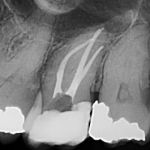How to Treat Receding Gums Naturally: Effective Home Remedies
Receding gums are a common dental issue that affects many people worldwide, causing discomfort and often leading to more serious oral health problems if not addressed. Receding gums occur when the gum tissue that surrounds the teeth pulls back or wears away, exposing more of the tooth or its root. While this condition is typically associated with aging, it can occur at any age, often as a result of poor oral hygiene, gum disease, or genetic factors. If you're concerned about receding gums and prefer natural treatment options, you're not alone. Many people seek out alternative methods to manage this condition before turning to more invasive treatments like surgery. In this article, we’ll discuss effective, natural remedies for treating receding gums and promoting healthier gums overall.
1. Understanding Receding Gums
Before diving into natural treatments, it’s essential to understand what causes receding gums and how it affects your oral health. Gums serve as a protective barrier for your teeth and the underlying bone structure. When the gums recede, it exposes sensitive tooth roots, leading to increased sensitivity to hot and cold temperatures. Additionally, exposed roots are more prone to decay, which can result in tooth loss if left untreated.
Receding gums can be caused by various factors, including:
- Poor oral hygiene: Failure to brush and floss regularly can lead to the buildup of plaque and tartar, which irritate the gums and cause them to recede.
- Gum disease: Gingivitis and periodontitis are common causes of gum recession, as they lead to the inflammation and infection of the gums.
- Genetic factors: Some people are more prone to gum recession due to their genetic makeup.
- Bruxism: Grinding your teeth can put excessive pressure on your gums and cause them to recede over time.
Now that we understand the causes, let’s explore how to treat receding gums naturally.
2. Natural Remedies for Receding Gums
Natural remedies for receding gums can help reduce inflammation, prevent further gum recession, and promote overall gum health. While these methods may not be a replacement for professional dental treatment, they can be used in conjunction with regular dental visits to improve oral hygiene and reduce symptoms.
2.1 Practice Good Oral Hygiene
One of the most effective ways to treat receding gums naturally is by maintaining a strict oral hygiene routine. I’ve found that brushing gently with a soft-bristled toothbrush and using fluoride toothpaste is essential in preventing further damage. Be sure to brush twice a day and floss daily to remove plaque and food particles that contribute to gum recession. Remember to brush in circular motions rather than back-and-forth strokes, as this can help avoid damaging the gums.
2.2 Use Saltwater Rinse
Saltwater rinses have been a time-tested remedy for various oral health issues, including receding gums. Salt has natural antibacterial properties that can help reduce inflammation and kill harmful bacteria in the mouth. I’ve personally found that rinsing with warm saltwater a couple of times a day helps soothe my gums and promote healing. Simply mix a teaspoon of salt in a cup of warm water, swish it around your mouth for 30 seconds, and spit it out. Be cautious not to overuse saltwater rinses, as too much salt can cause further irritation.
2.3 Apply Aloe Vera Gel
Aloe vera is well-known for its soothing and healing properties, and it can also be beneficial for receding gums. Aloe vera gel can help reduce inflammation and promote gum regeneration. After gently brushing your teeth, apply a small amount of fresh aloe vera gel directly to the affected gum area. Leave it on for about 10 minutes before rinsing it off. Aloe vera contains natural enzymes and antioxidants that can speed up the healing process, making it a great addition to your daily oral care routine.
2.4 Use Green Tea
Green tea is rich in antioxidants and has anti-inflammatory properties that can benefit your gums. I started drinking green tea daily, and I noticed that my gums felt healthier and less inflamed over time. Green tea can help reduce gum inflammation and prevent the growth of harmful bacteria that contribute to gum disease. In addition to drinking it, you can also use cooled green tea as a mouth rinse. Simply brew a cup, let it cool, and swish it around your mouth for about 30 seconds.
2.5 Massage Your Gums with Coconut Oil
Coconut oil is a natural antibacterial and anti-inflammatory agent, making it a perfect remedy for gum health. Oil pulling, or swishing oil in your mouth, has been shown to help reduce plaque buildup, which is a significant contributor to gum recession. I’ve found that gently massaging my gums with coconut oil for a few minutes each day can improve gum health. Simply apply a small amount of coconut oil to your gums and massage it gently with your fingers. You can also practice oil pulling by swishing the oil in your mouth for 10–20 minutes before spitting it out.
3. Lifestyle Changes to Support Gum Health
In addition to natural remedies, making certain lifestyle changes can help prevent receding gums from worsening. These changes focus on reducing the underlying causes of gum recession, such as bruxism, poor diet, and smoking.
3.1 Reduce Stress and Prevent Teeth Grinding
Teeth grinding, also known as bruxism, is a common cause of receding gums, especially during sleep. If you suffer from bruxism, it’s essential to address the issue to prevent further damage to your gums. I personally found that using a night guard helped protect my teeth from grinding during the night, which in turn improved the health of my gums. If you suspect you grind your teeth, consider consulting with your dentist about getting a custom night guard.
3.2 Quit Smoking
Smoking is one of the leading causes of gum disease and receding gums. The toxins in cigarette smoke damage the gum tissue and reduce blood flow, making it harder for your gums to heal. If you smoke, quitting is one of the best things you can do for your oral health. Since I quit smoking, I’ve noticed a significant improvement in my gum health, and my dentist has praised the condition of my gums during checkups.
3.3 Maintain a Balanced Diet
A nutritious diet plays a critical role in maintaining healthy gums. Eating foods rich in vitamins and minerals, such as vitamin C and calcium, can help strengthen your gums and prevent further recession. I make sure to include plenty of fruits, vegetables, and whole grains in my diet to support my oral health. Foods such as leafy greens, strawberries, and almonds are excellent choices for promoting healthy gums.
4. When to Seek Professional Help
While natural remedies can help manage the symptoms of receding gums, it’s essential to recognize when professional dental care is necessary. If your gums are severely receding, bleeding, or showing signs of infection, it’s important to see a dentist as soon as possible. In my experience, seeking professional help early on can prevent the condition from worsening and help you avoid more invasive treatments down the road.
In some cases, if the gum recession is severe, your dentist may recommend treatments such as scaling and root planing, gum grafts, or even surgical procedures to address the issue. However, for mild cases, incorporating these natural remedies into your daily routine can significantly improve your gum health and prevent further recession.
If you're interested in learning more about receding gums and exploring professional treatments, visit Dentistry Toothtruth for expert advice and resources on maintaining healthy gums.







 Aspen Dental - Plymouth, MA4.0 (306 review)
Aspen Dental - Plymouth, MA4.0 (306 review) North Penn Endodontics Group4.0 (87 review)
North Penn Endodontics Group4.0 (87 review) Dental Bright advanced family dentistry & orthodontics4.0 (69 review)
Dental Bright advanced family dentistry & orthodontics4.0 (69 review) aspen dental, Kevin D. Oh, LLC2.0 (8 review)
aspen dental, Kevin D. Oh, LLC2.0 (8 review) Grady Dental Care5.0 (281 review)
Grady Dental Care5.0 (281 review) Aspen Dental - Glendale, AZ4.0 (602 review)
Aspen Dental - Glendale, AZ4.0 (602 review) The Importance of Oral Health Education During Pregnancy for a Healthy Pregnancy
The Importance of Oral Health Education During Pregnancy for a Healthy Pregnancy Best Tips for Brushing Your Teeth Properly for Healthy Gums: Essential Techniques for Oral Health
Best Tips for Brushing Your Teeth Properly for Healthy Gums: Essential Techniques for Oral Health Why Skipping Dental Checkups Can Lead to Bigger Oral Health Problems
Why Skipping Dental Checkups Can Lead to Bigger Oral Health Problems Advantages of Porcelain Dental Restorations
Advantages of Porcelain Dental Restorations How Can Diabetes Cause Tooth and Gum Problems? Preventing and Managing Oral Health Issues
How Can Diabetes Cause Tooth and Gum Problems? Preventing and Managing Oral Health Issues Healthy Habits for Promoting Good Oral Health and Hygiene: Tips for a Healthy Smile
Healthy Habits for Promoting Good Oral Health and Hygiene: Tips for a Healthy Smile